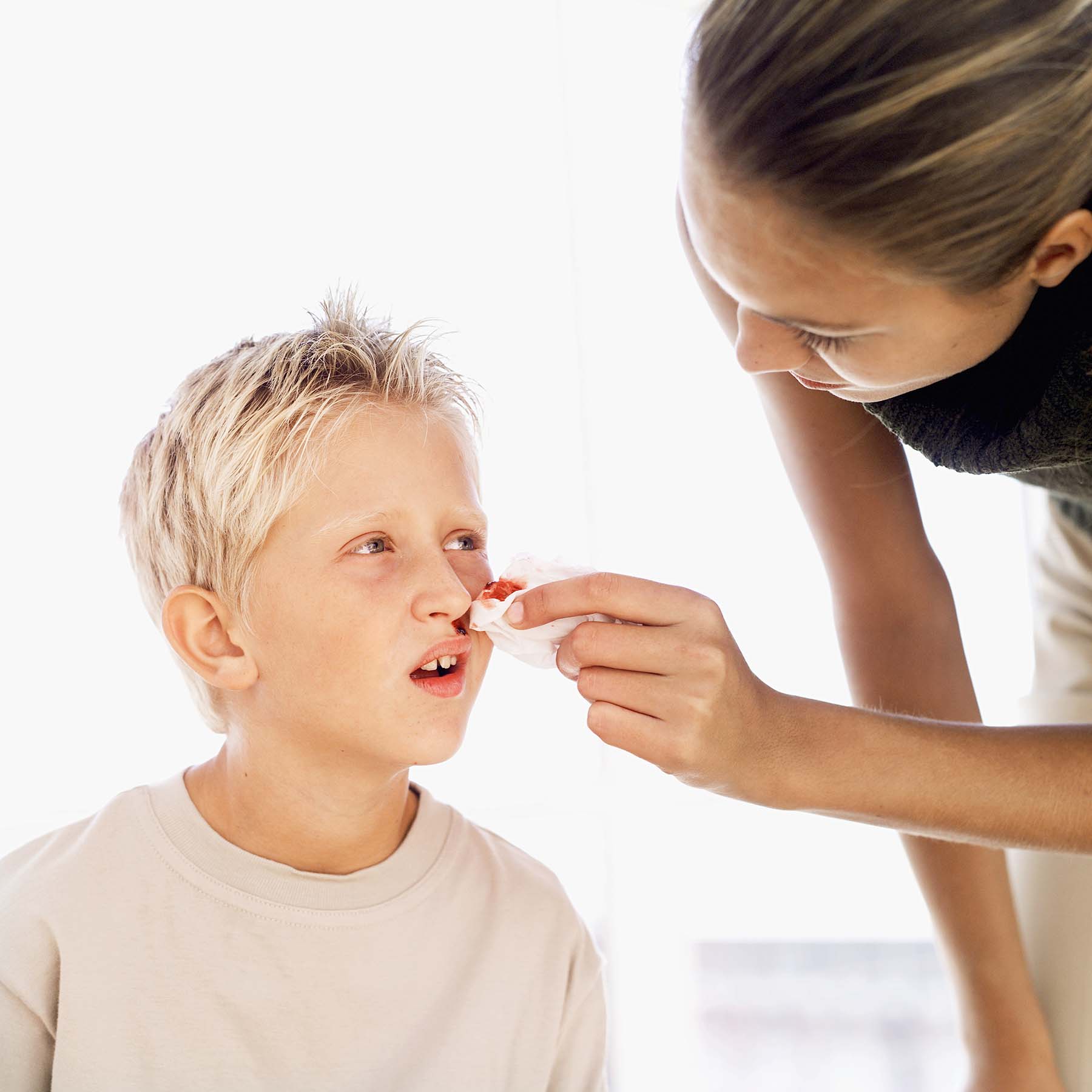The Do’s and Don’ts of Treating Nosebleeds

Nosebleeds are so common that you might assume they’re no big deal. And, most of the time, that’s the case.
People of any age can get a nosebleed, but they’re most common in children ages 2 to 10 and adults between 50 and 80, according to the American Academy of Otolaryngology–Head and Neck Surgery Foundation.
Children can experience nosebleeds even while sleeping.
Dr. Bjorn Herman, an otolaryngologist with the University of Miami Health System, and the American Academy of Otolaryngology recommend these tips to effectively stop the bleeding or recognize when it’s time for emergency medical attention.
What to do:
- Stay calm. Stress can make bleeding worse.
- Keep your head upright and lean slightly forward.
- Gently blow your nose to clear out blood clots.
- If available, a nasal decongestant spray (with the active ingredient oxymetazoline) can help stop the bleeding.
- Apply firm pressure to both nostrils for 5 to 10 minutes.
- If available, a bag of ice or a cold pack can be applied to the nose while maintaining pressure.
- Assess the source and severity of the nosebleed.
- Anterior nosebleeds are less severe and more common. The bleeding comes from the front of the inside of the nose and stops with ice and pressure.
- Posterior nosebleeds come from the back of the nose and drip down the back of the throat, even when you’re sitting upright. The bleeding can be more severe and usually requires intervention by a physician.
- Call your doctor if bleeding is severe or lasts longer than 30 minutes.
- Go to the emergency room if a nosebleed starts after an injury or trauma to the head.
- If a nosebleed is accompanied by facial pain or nasal obstruction, see an ENT for a nasal endoscopy to determine the underlying cause.
- If dry air may be causing nasal membranes to dry out and bleed, try using:
- a room humidifier, especially at night
- a saline nasal spray
- a saline gel or antibiotic ointment applied gently inside your nose (with a cotton swab, three times daily)
Here’s what NOT to do for nosebleeds:
- Don’t tilt back your head, which causes blood to drip down into the throat and airway.
- When a tissue is removed from your nasal passages, it can trigger more bleeding. Don’t stuff tissues up your nose.
- We know it feels gross in there, but after the initial bleeding stops, avoid the temptation to pick or blow your nose.
- Don’t bend down to lift anything heavy soon after the bleeding stops.
- Nasal steroid sprays can dry out the nose, causing more nosebleeds. Stay away.
- Seriously, don’t smoke. Among numerous health-harming things, smoking is known to dry out nasal tissues, which can cause bleeding.
Lastly, do not ignore frequent nosebleeds. Visit an ENT. Using a thin endoscope, an ENT can help determine the cause and recommend prevention and treatment methods.
Though it is natural to get upset when you or a loved one is bleeding, Dr. Herman says, “It’s best to remain calm and try conservative measures first, but don’t be afraid to seek care if the nosebleed is profuse or persistent.”
Dana Kantrowitz is a contributing writer for UMiami Health News.
Tags: Bjorn Herman, how to stop nosebleeds, otolaryngology in Miami
